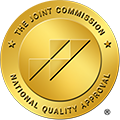Memphis Detox stands as a trusted provider of comprehensive recovery services, offering both medical detox and residential support for a wide range of substance use disorders. Our team understands that every journey to recovery is unique, and we are committed to providing evidence-based care tailored to each individual’s needs. By addressing both the physical symptoms of withdrawal and the underlying behavioral health issues, Memphis Detox helps clients build a strong foundation for lasting sobriety.
Learn how to recognize the signs of addiction and explore Memphis Detox’s addiction treatment program, including a list of the substances our programs treat.
Substance Use Disorders We Treat
Alcohol Use Disorder (AUD) is a chronic condition characterized by an inability to control drinking despite negative consequences. It can develop gradually, often starting with social drinking and escalating to dependence and addiction. Recognizing the signs of AUD—such as increased tolerance, withdrawal symptoms, and unsuccessful attempts to cut down—is the first step toward seeking help.
AUD affects millions of Americans and is associated with significant health, social, and economic costs. Left untreated, it can lead to liver disease, heart problems, mental health issues, and strained relationships. Early intervention and professional treatment are crucial for breaking the cycle of addiction and restoring well-being.
At Memphis Detox, we provide a safe, supportive environment for individuals struggling with alcohol addiction. Our team uses evidence-based protocols to manage withdrawal symptoms, reduce cravings, and address the psychological aspects of AUD. We believe that recovery is possible for everyone, and we are here to guide you every step of the way.
Opioid addiction is a major public health crisis, with substances like heroin, oxycodone, hydrocodone, morphine, and fentanyl driving overdose rates nationwide. These drugs are highly addictive and can quickly lead to physical dependence, even when used as prescribed. Opioid dependency often develops gradually, with individuals needing higher doses to achieve the same effects.
Common signs include cravings, withdrawal symptoms when not using, neglecting responsibilities, and continued use despite negative consequences. Physical symptoms may include drowsiness, constricted pupils, and slowed breathing. Recognizing these signs early can prevent further harm and increase the chances of successful recovery. Loved ones may notice changes in behavior, mood swings, and social withdrawal. If you or someone you know is showing signs of opioid dependency, seeking professional help is critical.
At Memphis Detox, we treat a wide range of opioid addictions, including those involving prescription painkillers and illicit opioids. Our team is experienced in managing the unique challenges associated with each type of opioid, ensuring that clients receive the most effective care possible. Opioid withdrawal can be intensely uncomfortable and, in some cases, dangerous. Attempting to quit “cold turkey” is rarely successful and can increase the risk of relapse or overdose.
Stimulant addiction involves substances that increase alertness, energy, and euphoria. Common stimulants include cocaine, methamphetamine, and prescription medications like Adderall and Ritalin. These drugs can be highly addictive and lead to serious health consequences.
Stimulant use can cause a range of behavioral and physical effects, including increased energy, euphoria, agitation, paranoia, and risky behaviors. Long-term use may lead to anxiety, depression, insomnia, cardiovascular problems, and cognitive impairment.
The cycle of stimulant use and crash can be difficult to break without professional help. Withdrawal symptoms may include fatigue, depression, sleep disturbances, and intense cravings. These symptoms can make it challenging to quit without support.
Prescription drug abuse involves the misuse of medications such as painkillers (opioids), anti-anxiety medications (benzos), sleep aids (zolpidem, eszopiclone), and stimulants (Adderall, Ritalin). These substances can be highly addictive and lead to serious health risks when used outside of medical supervision.
Recognizing the signs of prescription drug dependency—such as taking higher doses, running out of medication early, or seeking prescriptions from multiple doctors—is the first step toward recovery. Early intervention can prevent further harm and improve outcomes.
Memphis Detox treats a wide range of prescription drug addictions, providing safe withdrawal management and comprehensive support. Our team is experienced in addressing the unique challenges associated with each type of medication.
Polysubstance use refers to the simultaneous or sequential use of multiple substances, such as alcohol, opioids, benzos, and stimulants. This pattern of use increases the risk of overdose, medical complications, and mental health issues.
Dual addiction, or co-occurring substance use disorders, is common and often requires specialized treatment. Individuals may use different substances to enhance effects, manage withdrawal, or cope with emotional pain.
Memphis Detox is experienced in treating polysubstance use and dual addiction, providing integrated care for complex cases. Our team understands the unique challenges associated with multiple addictions and is committed to helping clients achieve recovery.


How Memphis Detox Provides Safe, Integrated Care
In addition to medical detox, we offer residential support, counseling, and group therapy to address the psychological aspects of addiction. Our holistic approach ensures that clients receive the care and support they need to achieve lasting recovery.
Memphis Detox also provides aftercare planning and referrals to specialized programs for dual diagnosis and co-occurring disorders. Our goal is to empower clients to build healthy, substance-free lives.
Frequently Asked Questions
About Addictions Treated
Find the answers to commonly asked questions about the addiction treatment Memphis Detox provides below:
Yes, our team is experienced in treating clients with multiple addictions, also known as polysubstance use. We develop integrated treatment plans that address all substances involved, ensuring safe withdrawal and comprehensive recovery support.
If you experience withdrawal symptoms when not using, have a history of heavy or prolonged substance use, or have tried unsuccessfully to quit on your own, medical detox may be necessary. Our team can provide a confidential assessment to determine the safest and most effective treatment approach.
Yes, Memphis Detox offers supportive housing for clients who need a stable environment during early recovery. We also provide referrals to sober living and transitional housing programs for ongoing support after detox.
Yes, we work closely with clients to develop aftercare plans and connect them with outpatient programs, therapy, and community resources. Our goal is to ensure a smooth transition to the next phase of recovery and support long-term success.
Memphis Detox treats a wide range of addictions, including alcohol, opioids, benzos, stimulants, prescription drugs, and polysubstance use. Our comprehensive approach addresses both the physical and psychological aspects of addiction, providing individualized care in a safe, supportive environment. If you or a loved one is struggling with substance use, we encourage you to reach out for a confidential consultation and take the first step toward lasting recovery.




